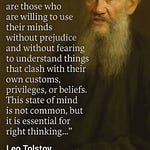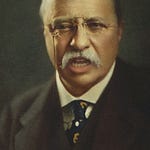Hello, I am Bertrand Russell, philosopher, mathematician, and advocate for reason and social reform. Today, I want to share a thought that I have always held close to my observations on society and justice: "Many of the actions by which men have become rich are far more harmful to the community than the obscure crimes of poor men, yet they go unpunished because they do not interfere with the existing order." When I wrote this, I was reflecting on the paradox of modern society: the structural biases in the way wealth, power, and morality are judged. In every era, societies are organized to preserve the interests of those in power, often at the expense of the broader community. Harm caused by the accumulation of wealth through exploitation, environmental destruction, or financial manipulation is normalized, even protected, because it upholds the prevailing order of the day. Meanwhile, the transgressions of the less fortunate, who often act out of desperation, are criminalized and punished harshly. At the core of this imbalance is a systemic issue: society tends to conflate wealth with virtue and poverty with vice. This perpetuates a cycle where the rich enjoy impunity, their actions deemed "legal" even when they erode the fabric of communal well-being. The poor, on the other hand, are often vilified for petty crimes or survival acts that pale in comparison to the larger harms inflicted by unchecked capitalism or the exploitation of resources and labor.
Playback speed
×
Share post
Share post at current time
Share from 0:00
0:00
/
0:00
Transcript
Many of the actions by which men have become rich are far more harmful to the community than the obscure crimes of poor men yet they go unpunished because they do not interfere with the existing order
Russell Bertrand
Dec 24, 2024
Timeless Quotes: A Journey Through Enduring Wisdom (private feed for hase@peachwiz.com)
Timeless Quotes: A Journey Through Enduring Wisdom (private feed for hase@peachwiz.com)
Timeless Quotes: A Journey Through Enduring Wisdom (private feed for hase@peachwiz.com)Listen on
Substack App
Spotify
RSS Feed
Recent Episodes










